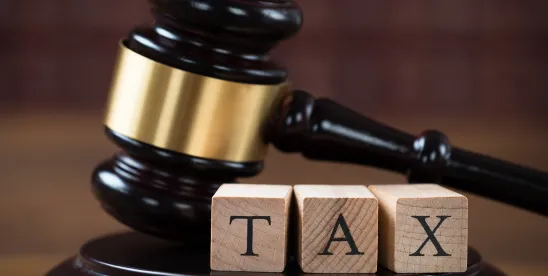The Internal Revenue Service (IRS) recently announced a new settlement initiative for Syndicated Conservation Easements (SCEs) that are currently under audit and have not reached the Tax Court. This new settlement initiative offers considerably more favorable terms than the IRS’s settlement initiatives for SCEs currently docketed in the United States Tax Court. Both settlement initiatives reduce the deduction to, essentially, the capital the partner investor contributed to the fund and require the investor/partner to pay back taxes and penalties on the amount due. However, the new settlement initiative imposes a 5% penalty for gross valuation misstatements and a 21% tax rate at the partnership level, down from the previous 10% penalty and imposing the top individual marginal tax rate (typically 37%) in the settlement initiative for docketed cases.
Previously, tax advisors could confidently assure clients that they would not receive a better offer from the IRS. However, because this new initiative offers better terms than those previously issued by the IRS, it appears to have eroded that certainty.
On its face, the new terms should be appealing to many partners, particularly in light of the 5th Circuit’s findings in Brooks and recent tax court cases (Big K and Oconee). Furthermore, taxpayers who do not participate in the settlement will need to litigate in Tax Court, where the Commissioner will undoubtedly look to find fraud even if the Commissioner is not seeking fraud penalties. For example, the findings of fact in Oconee mirror the allegations in the DOJ’s landmark criminal prosecution of Inland Capital’s principals.
In a remarkable twist, investors in the highest tax brackets who invested in SCEs that generated the largest deduction per dollar invested (e.g. InvestCo ratio) will do better than similar investors who invested in SCEs that promised smaller returns. Some investors who are in the highest tax bracket and invested in aggressive SCEs may still come out dollars ahead because the 21% rate will apply instead of a 37% rate.
Although the financial terms of the new settlement are significantly better for investors, two provisions may make it impractical to implement.
First, the new settlement initiative creates a classic free-rider problem. The new settlement initiative requires the partnership to make a single payment of the entire amount due. Limited partnerships, including SCEs, typically do not have the ability to force partners to contribute additional capital. If a partner refuses to contribute, the typical recourse is, that the recalcitrant partner’s interest in the partnership is diluted. Not much of a hammer to threaten with. Thus, if a single member does not want to settle, the partnership agreement may allow them to simply refuse to contribute. The remaining partners will have to pay more or face an increasingly hostile Tax Court.
Second, the settlement creates a 5th Amendment dilemma for some partners. The settlement requires the partners to fully cooperate “during the resolution.” Cooperation includes, but is not limited to, providing “additional information as requested by the IRS.” This undefined commitment may ultimately crater the deal considering the agreement specifically does not preclude the “IRS from investigating any associated criminal conduct or recommending prosecution of any individual or entity that participated in or assisted or advised others in participating in an SCE transaction for violation of any criminal statute.”
Partners who play a greater role, like some of the Oconee partners, need to evaluate the risk of “full cooperation.” It is unclear if the IRS will reject a settlement if an individual partner asserts their 5th Amendment rights or refuses to respond to a problematic document request. As noted above, the IRS’ allegations in Tax Court echo the DOJ’s allegations in the Inland Capital prosecution. Time will tell if the Tax Court cases – and information gathered during the audits and litigation – are predictive of the next round of indictments from an emboldened Department Of Justice. In the meantime, some individual partners are going to be faced with a dilemma: sign and hope the IRS doesn’t ask for additional information or reject the settlement and hope the Tax Court winds change direction.
It is still too early to tell whether the new settlement is real or an IRS ruse. On one hand, the IRS should be commended for offering favorable financial terms that will encourage settlement, especially in light of Brooks. On the other hand, the IRS should allow the partnerships to pay in full even if some of the members decline to participate or cooperate if it is serious about settling a significant number of cases before they reach Tax Court.






 />i
/>i
